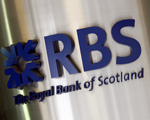Royal Bank of Scotland has defeated Manchester-based developer Property Alliance Group in a potentially highly disruptive lawsuit over LIBOR manipulation.
PAG alleges that RBS behaved fraudulently by selling it swaps based on the LIBOR rate, which the bank was later found to have been manipulating.
In addition, the developer claims that the swaps were missold because they did not protect PAG from its interest rate risk. PAG is also claiming for damages for breach of contract over RBS’ decision to transfer PAG to its Global Restructuring Group.
RBS denies wrongdoing, misselling, misrepresentation and breach of contract. According to court papers, PAG is a property developer with a portfolio worth about £200m and a former customer of RBS.
In a 540-paragraph ruling today Mrs Justice Asplin backed the bank, rejecting all of PAG’s claims.
She found that managers at PAG did not agree to the swaps “in reliance upon the LIBOR representations”.
The judge said that they “could not have understood the implied representation to have been made, and therefore did not rely on them”.
The judge also said that RBS did not fraudulently misrepresent the swaps because “the information which was provided was not inaccurate”.
According to PAG, RBS recommended and sold four Libor-based interest rate-derivative products, in sums of between £60m and £75m, between 2004 and 2008 as “hedging” or “protection” against PAG’s interest rate risk in respect of investment loan facilities. It said that the swaps had a “toxic effect” and that, among its losses, it incurred breakage costs of £8m in terminating them.
Property Alliance Group Ltd v Royal Bank of Scotland, Chancery (Asplin J) 21 December 2016










